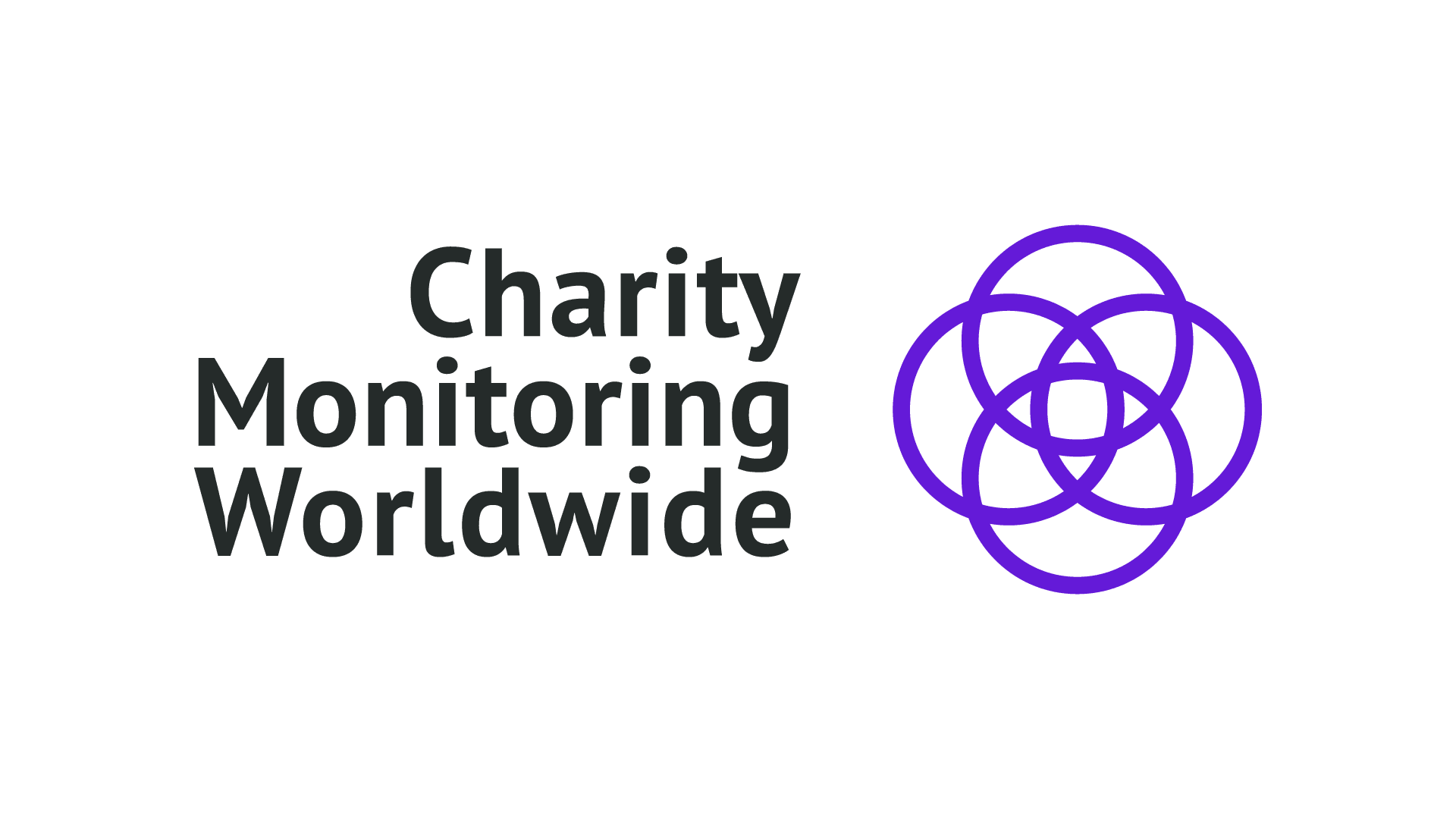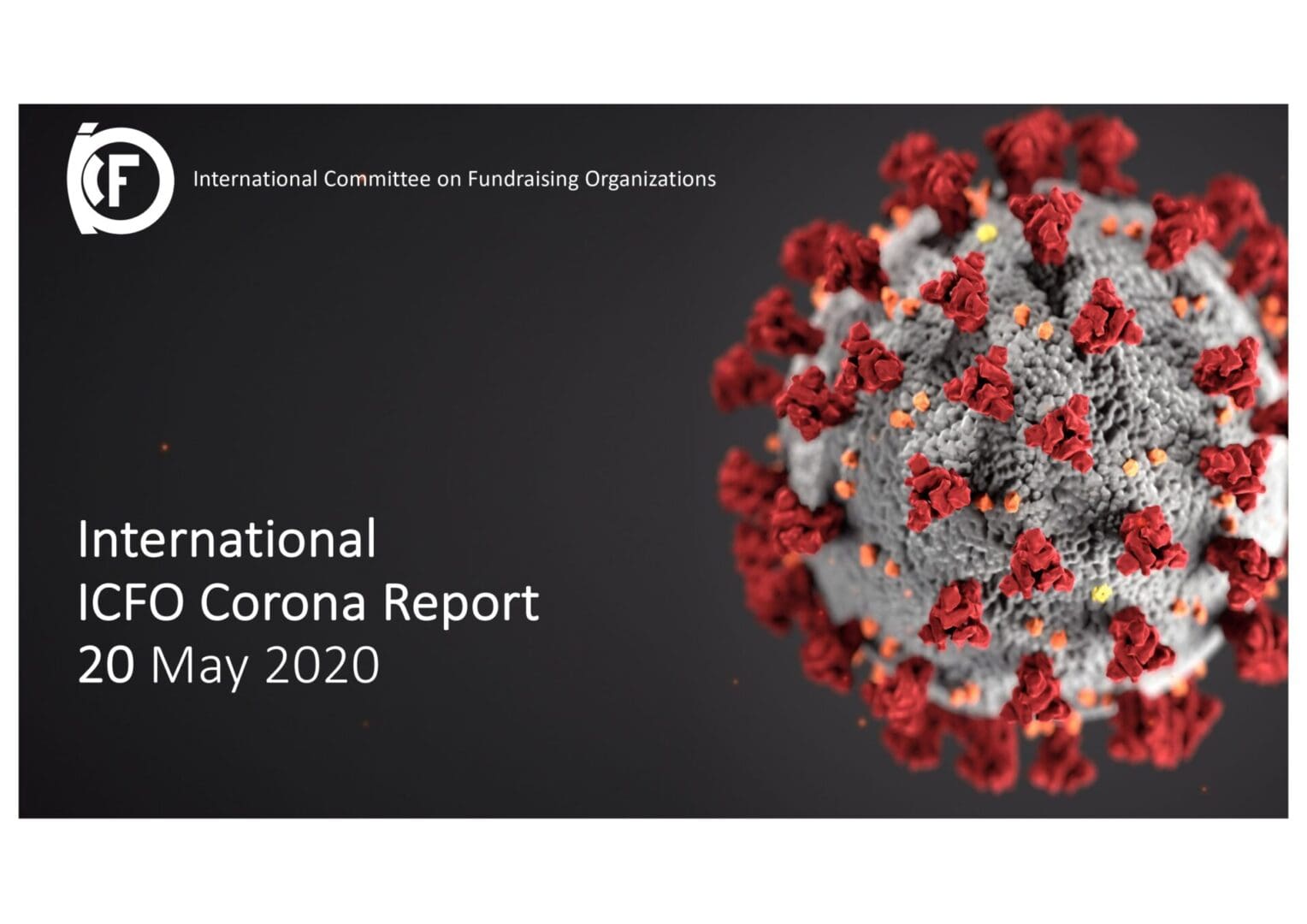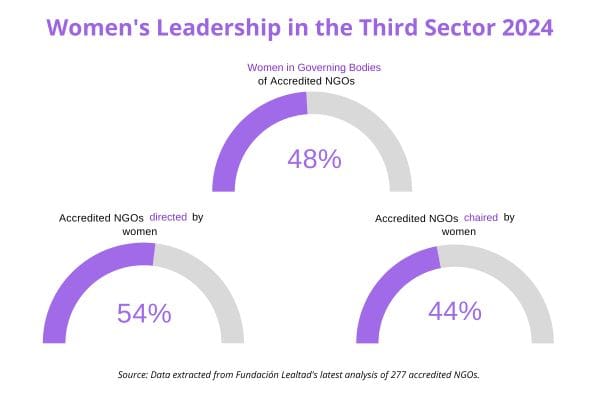In a context where transparency, sustainability, and institutional strength are key to building trust in the Third Sector, it is essential for NGOs to have effective governance structures. Aware of this need, Fundación Lealtad has published “Governance of Foundations and Associations: Composition, Functioning, Challenges, and Best Practices,” which thoroughly analyzes the profile and functioning of Boards of Trustees and Boards of Directors in Spanish NGOs
Snapshot of Leadership in the Third Sector
The study identifies notable strengths in the design and functioning of the governing bodies of Accredited NGOs. Transparency is one of the most established pillars: all analyzed entities publish the composition of their governing body on their website, in line with the requirements of the “Donate with Confidence” seal. A significant plurality is also observed, with an average of 10 members per body, a number that increases as the organization grows in size.
Regarding qualifications, 77% of members have university or higher education, reinforcing the technical profile of those undertaking governance roles, especially in entities with higher activity levels. It also highlights the need for time to assume responsibilities that are both important and altruistic: 60% of members in associations and 50% in foundations are retirees, pensioners, or homemakers.
It is also noteworthy that only 3% of members receive any remuneration, mostly for performing executive functions within the NGO. Experience is another relevant factor: although the average tenure in the position is long, many entities have renewed part of their bodies in recent years, especially the larger ones.
Other practices that reinforce this model include the existence of delegated committees, which streamline decision-making, and the adoption of hybrid meeting formats, allowing for greater flexibility and participation. Additionally, 18% of organizations have identified family ties between members of the governing body and beneficiaries, highlighting a direct and personal connection to the social mission driving their work.
Challenges and Recommendations
The study also identifies several challenges. Although entities show significant renewal rates, many struggle to find replacements, especially among younger profiles. 28% of members joined at over 60 years old, indicating a structural aging that may limit innovation capacity.
Based on these findings, the study proposes several action lines aimed at strengthening the role of governing bodies and their ability to meet current demands. One priority is to promote generational renewal by designing strategies that encourage the entry of younger profiles and creating attractive and accessible participation spaces. In parallel, it emphasizes the need to advance toward greater leadership equity, especially considering that organizations led by women manage, on average, significantly lower budgets than those led by men.
Other recommendations include improving internal participation mechanisms, such as using digital tools that facilitate member involvement in assemblies, and implementing periodic evaluations to review the governing body’s performance. Finally, the development of Good Governance Codes is proposed as an ethical and operational reference for those assuming responsibilities in this area.
An Evidence-Based Study
The study is based on real data obtained from the accreditation processes conducted annually by Fundación Lealtad with over 550 organizations. Specifically, 284 Accredited NGOs were examined using verifiable documentation, such as audited annual accounts, meeting minutes, action plans, internal policies, or information published on their websites. This approach allows for moving away from subjective perceptions and ensuring a rigorous diagnosis, thanks to the work of the Foundation’s team of analysts.
“A modern society needs a balance between the public sector, the private sector, and the Third Sector. That’s why our mission is to bring the Third Sector closer to Spanish society and vice versa. This type of report facilitates that approach because it not only helps to make the role of non-profit entities visible but also offers organizations a useful tool to better understand themselves, compare with others, and strengthen their governing bodies, which are the cornerstone of their functioning.”
— Salvador García–Atance, President of Fundación Lealtad
With this report, Fundación Lealtad reinforces the message it has upheld for years through the “Donate with Confidence” seal: Accredited NGOs are accountable, manage responsibly, and fulfill their social purposes.
“With this publication, we reinforce our commitment to transparency and accountability in the Third Sector. In the face of distrust, we provide objective evidence and concrete proposals that contribute to improving NGO management. Our technical analysis allows us to identify challenges and support organizations toward stronger governance with greater added value. We want to drive positive change in NGOs through knowledge.”
— Ana Benavides, General Director of Fundación Lealtad
This analysis offers concrete data that help dismantle one of the main barriers to citizen collaboration: distrust in fund management and transparency, identified as the second barrier to supporting NGOs, according to the “Donor Profile 2024” report by the Spanish Fundraising Association (AEFr).
With this publication, Fundación Lealtad reaffirms its role as a benchmark in transparency and good governance in the Third Sector, offering useful and actionable knowledge to strengthen NGO management.
__________________
Full study in Spanish here: Governance of Foundations and Associations – Fundación Lealtad.









